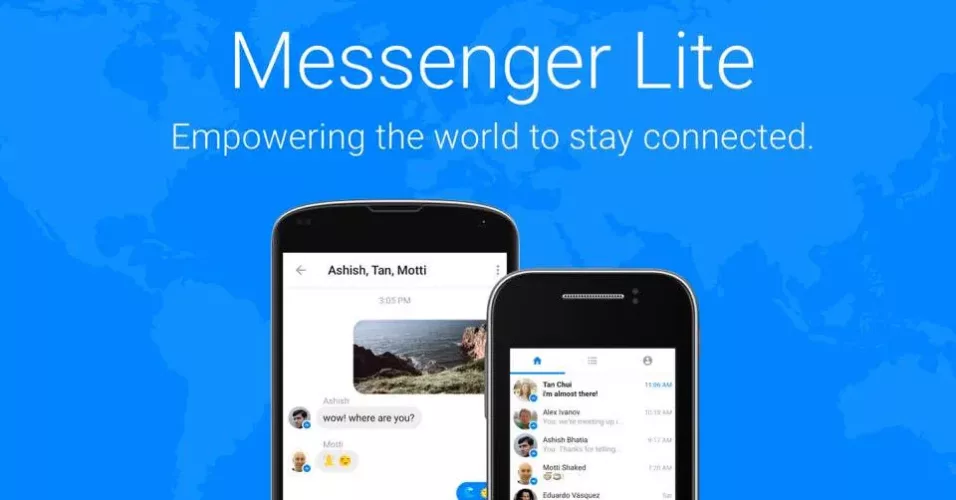Lite Messenger is a small, fast and data-saving version of Facebook Messenger that only takes up 6,9MB. On Messenger, you can send text, images, links, and stickers to anyone.
More information about Messenger Lite
Facebook Messenger Lite is a lite version of the popular messenger program from Facebook. The app offers all the usual Messenger features. This software is light on your phone's memory and internet usage plan, with a download size of just 6,9MB and over a billion downloads. On Messenger, you can send text, images, links, and stickers to anyone. You can also use video chat to communicate with your friends.
Additional features in the base Messenger app include games, stories, extensions, automated marketer messaging, and more. Messenger Lite, on the other hand, keeps everything focused on texting. So when you're using Messenger on a low-end device, disabling those other features removes a lot of drag and provides a speedy interface. The lack of extra features leads to a simpler, less distracting email program that takes up less storage space, consumes less computing power, and therefore uses relatively less internet data.
How Messenger Lite works
The app works the same as the app Facebook Messenger of origin. There are only three main tabs which reflect the main capabilities of Messenger. At the top of your screen, you'll see Home, Contacts, and Account.
What is the best use of Messenger Lite?
Any Android device can run Lite Messenger. The app is designed to work well on smartphones with limited RAM, allowing them to multitask easily. The main motivations for creating this application are:
- Get rid of all unnecessary Messenger features so you can just use it for messaging and video calling.
- Older or less powerful Android devices.
- Low capacity storage devices.
- Fewer people have mobile data plans.
- Connections to slow or unstable networks.

